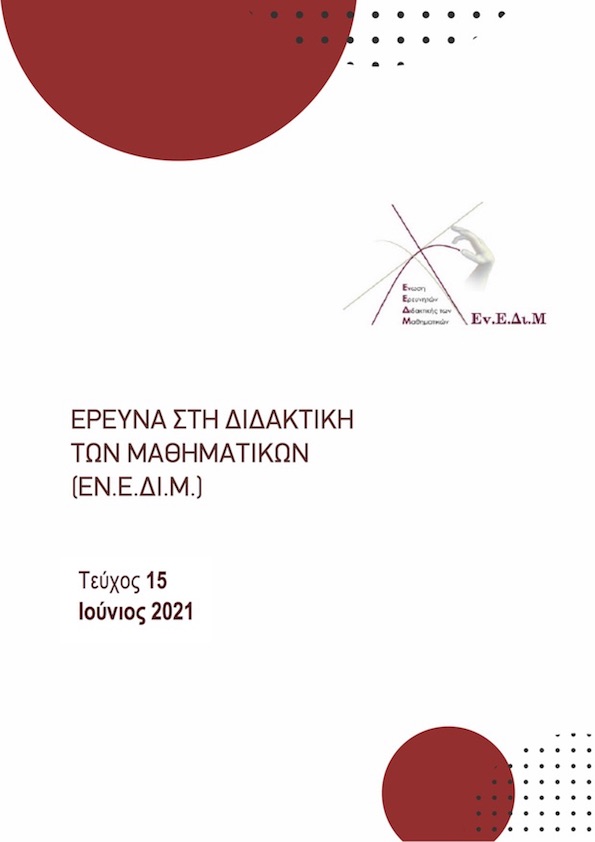ΕΚΠΑΙΔΕΥΤΙΚΗ ΡΟΜΠΟΤΙΚΗ ΚΑΙ ΑΝΑΠΤΥΞΗ ΧΩΡΙΚΗΣ ΣΚΕΨΗΣ: ΕΝΑ ΔΙΔΑΚΤΙΚΟ ΠΕΙΡΑΜΑ ΜΕ ΠΑΙΔΙΑ ΠΡΟΣΧΟΛΙΚΗΣ ΗΛΙΚΙΑΣ
Résumé
H παρούσα εργασία εστιάζει στη διερεύνηση του κατά πόσο είναι εφικτή η ανάδυση χωρικών δεξιοτήτων με παιδιά προσχολικής ηλικίας μέσα από την συμμετοχή σε συνεργατικές διαδικασίες προγραμματισμού της κίνησης ενός ρομπότ σε συνθήκες διδακτικού πειράματος. Τα παιδιά που συμμετείχαν στο διδακτικό πείραμα ενεπλάκησαν σε σειρά δραστηριοτήτων που απαιτούσαν συνεργατικές πρακτικές σύνθεσης ψευδοκώδικα. Τα ερευνητικά δεδομένα μας βασίζονται σε ημερολόγιο επιτόπιας παρατήρησης, συνεντεύξεις, σχέδια και "διαγράμματα ροής" που δημιούργησαν τα παιδιά και στόχευαν στην συστηματική καταγραφή της συνολικής εμπειρίας τους. Η ανάλυση, μας οδηγεί στο συμπέρασμα ότι είναι πιθανή η καλλιέργεια συγκεκριμένων χωρικών δεξιοτήτων για τα μικρά παιδιά εφόσον αυτά εμπλέκονται βιωματικά σε στοχευμένα σενάρια εκπαιδευτικής ρομποτικής τα οποία τους παρέχουν πρόσβαση σε ποικιλία νοητικών εργαλείων κι ευνοούν την κοινωνική αλληλεπίδραση μεταξύ τους ως βάση για τη δόμηση γνώσης.
Article Details
- Comment citer
-
Κούριας (Spyros Kourias) Σ. (2021). ΕΚΠΑΙΔΕΥΤΙΚΗ ΡΟΜΠΟΤΙΚΗ ΚΑΙ ΑΝΑΠΤΥΞΗ ΧΩΡΙΚΗΣ ΣΚΕΨΗΣ: ΕΝΑ ΔΙΔΑΚΤΙΚΟ ΠΕΙΡΑΜΑ ΜΕ ΠΑΙΔΙΑ ΠΡΟΣΧΟΛΙΚΗΣ ΗΛΙΚΙΑΣ. Έρευνα στη Διδακτική των Μαθηματικών, (15), 6–23. https://doi.org/10.12681/enedim.24621
- Rubrique
- Νέοι Ερευνητές

Ce travail est disponible sous la licence Creative Commons Attribution 4.0 International .
Οι συγγραφείς των άρθρων που δημοσιεύονται στο περιοδικό διατηρούν τα δικαιώματα πνευματικής ιδιοκτησίας επί των άρθρων τους, δίνοντας στο περιοδικό το δικαίωμα της πρώτης δημοσίευσης. Άρθρα που δημοσιεύονται στο περιοδικό διατίθενται με άδεια Creative Commons BY και σύμφωνα με την άδεια μπορούν να χρησιμοποιούνται ελεύθερα, με αναφορά στο/στη συγγραφέα και στην πρώτη δημοσίευση.


